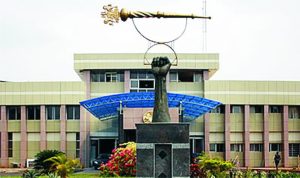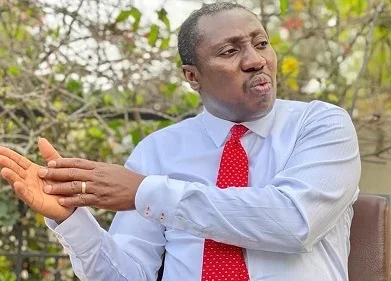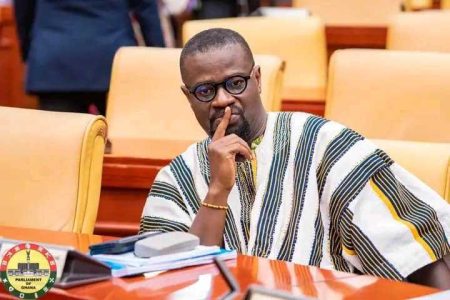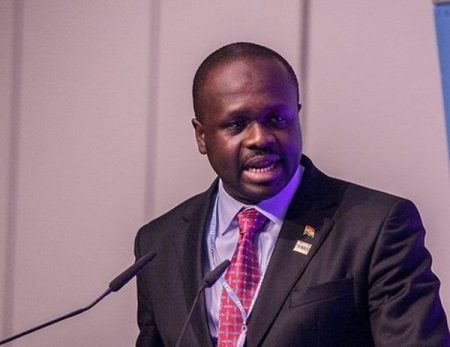The recent cholera outbreak in Winneba, Ghana, has sparked a political controversy, with Minority Leader and Member of Parliament for Effutu, Hon. Alexander Kwamina Afenyo-Markin, squarely blaming the ruling National Democratic Congress (NDC) for the crisis. Afenyo-Markin alleges that the NDC, in a display of political triumphalism following their recent electoral victory, deliberately locked up public toilets in Winneba for three days, driven by a “my government has come” mentality. This act, he argues, forced residents to resort to open defecation along the town’s shores, directly contributing to the surge in cholera cases. The MP insists that the NDC must bear responsibility for the outbreak’s consequences, emphasizing that the disease affects all residents of Winneba, regardless of their political affiliation.
Afenyo-Markin’s accusation paints a picture of political hubris leading to a public health disaster. He contends that the NDC’s actions, motivated by a desire to assert their newfound power, demonstrated a disregard for the basic sanitation needs of the community. The closure of public toilets, he claims, created a breeding ground for the cholera bacteria, as human waste contaminated the shoreline, eventually finding its way into the water supply and spreading the disease. By highlighting the indiscriminate nature of the outbreak, affecting both NDC and NPP supporters, Afenyo-Markin seeks to underscore the severity of the situation and the widespread impact of the NDC’s alleged negligence. He effectively frames the outbreak not just as a health crisis, but as a consequence of irresponsible governance.
While attributing blame to the NDC, Afenyo-Markin also appealed for unity and a focus on containing the outbreak. He urged residents to avoid politicizing the health crisis and to prioritize collaborative efforts to combat its spread. This call for a unified front reflects a pragmatic approach, recognizing the immediate need to address the public health emergency while also holding those responsible accountable. He encouraged residents to heed the advice and guidelines provided by health professionals, emphasizing the importance of preventative measures in curbing the spread of cholera. This dual approach – assigning blame while advocating for collective action – aims to address both the immediate crisis and the underlying political issues that allegedly contributed to it.
Beyond the immediate cholera outbreak, Afenyo-Markin’s remarks touch upon broader concerns about the rule of law and the potential for political transitions to exacerbate existing tensions. He cautioned against using a change in government as a pretext for suppressing opposing voices or engaging in retaliatory actions. This warning underscores the importance of respecting democratic principles and ensuring that transitions of power do not devolve into periods of instability or political persecution. He emphasized the need to address grievances through established legal channels, promoting a culture of respect for the rule of law and fostering a more stable political environment.
Afenyo-Markin’s statements reveal a complex interplay of political and public health concerns. He portrays the cholera outbreak not merely as an unfortunate natural event, but as a direct consequence of political decisions. By explicitly blaming the NDC’s alleged actions, he seeks to hold them accountable for the health crisis while simultaneously urging the community to unite in addressing the outbreak. This dual message underscores the need for both immediate action to contain the disease and long-term measures to prevent similar incidents in the future. He calls for a commitment to the rule of law, suggesting that adherence to legal processes is crucial for maintaining peace and stability, particularly during periods of political transition.
In essence, Afenyo-Markin’s narrative frames the cholera outbreak within a broader context of political responsibility and the importance of upholding democratic principles. He argues that the NDC’s actions reflect a dangerous disregard for public welfare, prioritizing political posturing over the health and safety of the community. By linking the outbreak to political decisions, he highlights the potential consequences of unchecked power and the vital role of accountability in ensuring good governance. His simultaneous call for unity and adherence to the rule of law underscores the need for a balanced approach, addressing the immediate health crisis while also working towards a more stable and just political environment.














